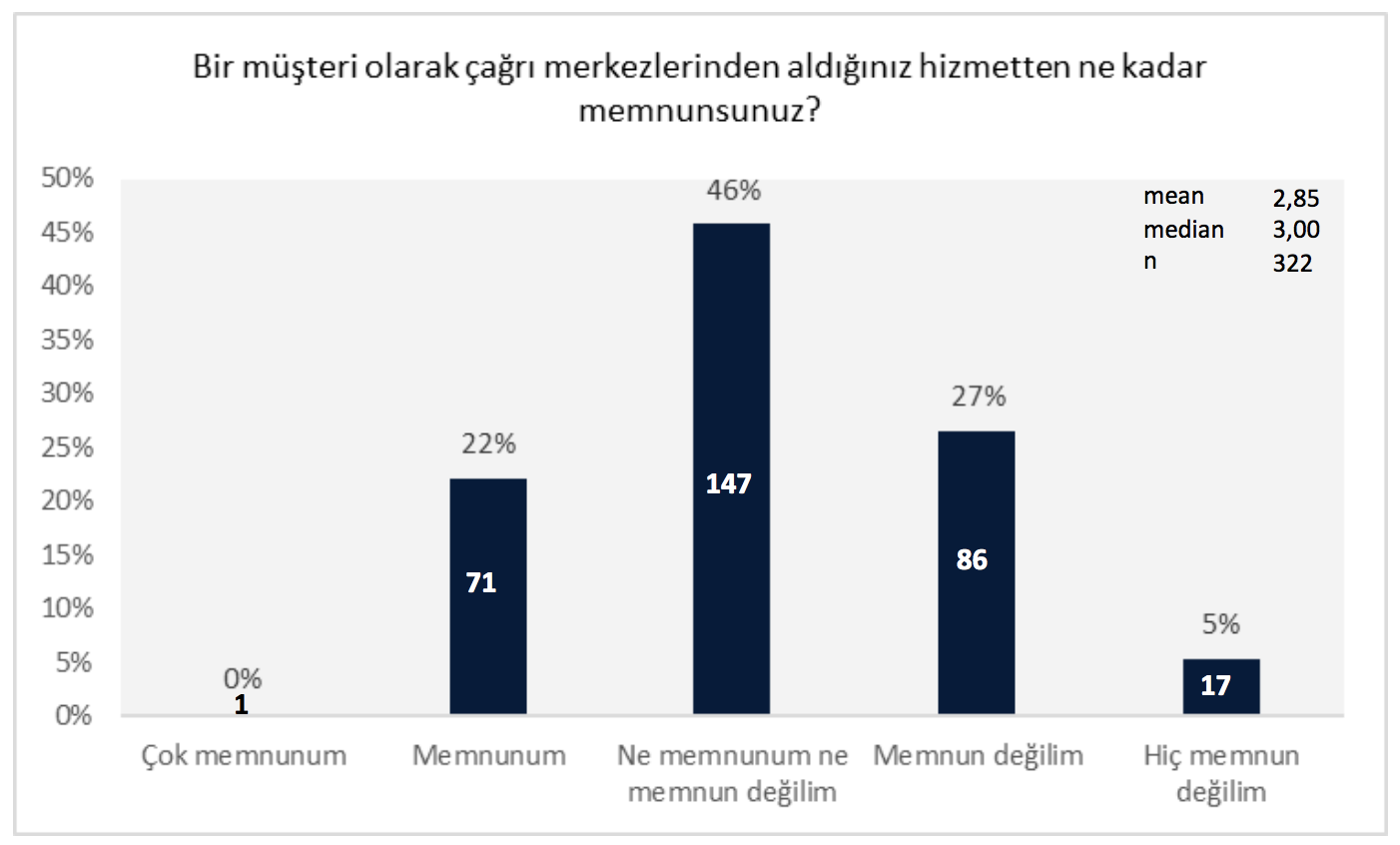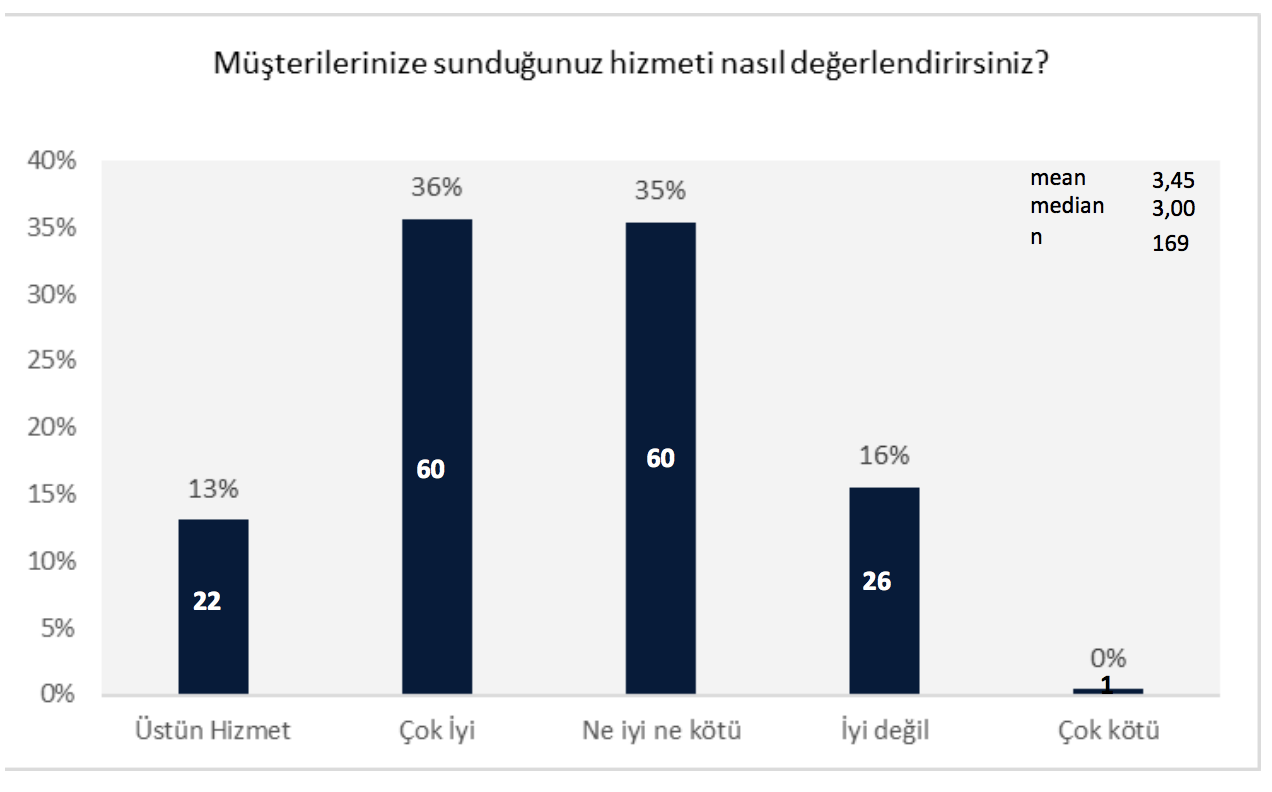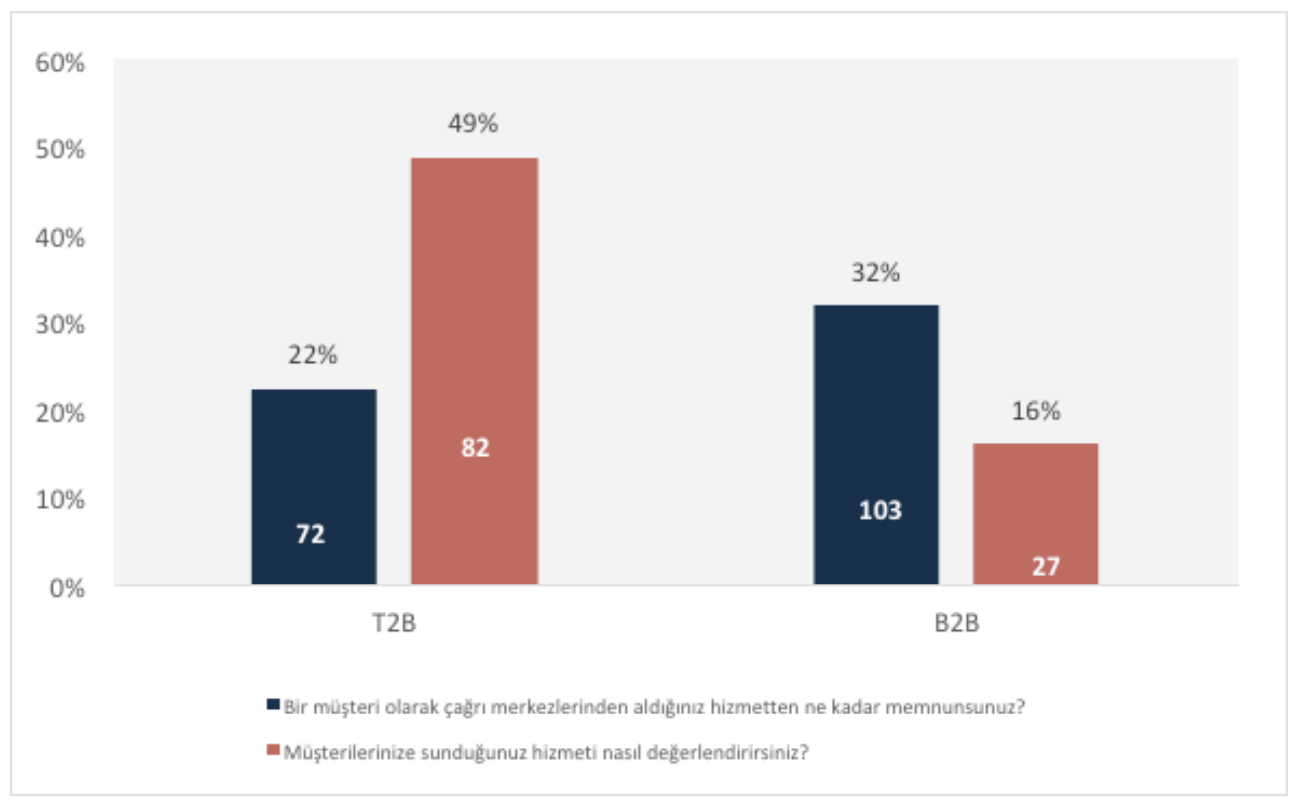Statistical data on customer experience measurement in Turkey is scarce. We introduced the Turkey Contact Center Customer Experience Research conducted by UNIQ in 2015 with a press release. (Those who are interested can reach the results from this link: http://www.uniq-tr.com/cagri-merkezi-musteri-deniyimi-arastirmasi/) I have been participating as a speaker in our organizations and conferences of other respected organizations in recent years. The issues are generally about the main problems of the Turkish contact centers, the mistakes made, and the establishment of the proper roadmap in customer experience. I like to use interactive systems in conferences where participants can vote from their smartphones. Getting the participants' opinions, most of whom are contact center professionals, on the subject I talk about sheds light on both the other participants and me. Two of these questions related to each other are very interesting to me, and I wanted to share them in this article.
Are you satisfied with the service you received?

What appears in this table is this: None of the 322 contact center professionals I asked the question were very satisfied with the service they received. Only about 1 in 5 people expressed satisfaction. This result is not very encouraging. (top 2 boxes)
On the other hand, 1 in 3 (32%) is either not satisfied at all or not satisfied. (2nd box in the bottom) I omit the 46% area in the middle (neither satisfied) from the evaluation. The satisfaction average is 2.85 out of 5, which doesn't make much sense. Distribution is more important. But here you go: Overall satisfaction is 57%.
Are you satisfied with the service you provide?
Now the other side of the coin: The second question is, "How would you evaluate the service you provide to your customers through your contact center?" Here is the answer:
It is clear from this table that none of the 169 contact center professionals who answered the question think they provide lousy service! Only 16 out of 100 people say the service they provide is not good. On the other hand, 1 out of 2 (49%) thinks they provide excellent service. 13 out of 100 people say they provide superior service…
There is something weird about this matter!

When I show the results to the participants, there is usually a smile and sometimes a laugh in the hall (I also laugh at these results, but I am not too surprised).
As a result, T2B and B2B show that; people are not satisfied with the service they receive, but they think their organization did not provide that lousy service! "So the service we receive is bad, but the service we provide is good… At least in my company. Now, it means that someone else is giving a bad service." However, there is a mathematical problem; It's obvious that someone else has given worse service.
Getting Above Yourself
I said I wasn't surprised because I had read studies like this. For example, according to a survey, "80% of companies surveyed say they offer either "very good" or "superior" customer service. However, only 8% of the customers of these companies think so! (Customer Service Hell, Brad Tuttle)" This situation is worse than ours, but not much different.

The reason for this is also hidden in human psychology. One of the constant human biases is "overconfidence." It is considered the father of all illusions. Accordingly, most people believe that they perform better than others, are more intelligent and honest, have a better future, have a happier marriage, etc. But there is a problem; we can't all be above average. For example, 93% of American drivers think they are better than the median, which is not statistically possible. In his 2011 book Thinking Fast and Slow, Daniel Kahneman called overconfidence "the most important cognitive bias." The illusion has been considered as the culprit for many disasters such as the nuclear accident at Chernobyl, the sinking of the Titanic, the loss of Space Shuttles Challenger and Columbia, the 2008 mortgage crisis, and the great recession that followed, among many other things.
Conclusion
Overconfidence shows how error-prone people's judgment is. I think it would be fitting to consider the research results in this context. The accuracy and reliability of the information provided by service providers are open to discussion. Most people say, "I'm fine." In this respect, it would be better to focus on other data, which is the "fact" that one out of three people is not satisfied with the service they receive!
Again, I asked at conferences, "How do you measure quality in your call center?" The answers to the question show that there is a long way to go in this regard. While most of the respondents measure the calls by listening, other measurement methods are not yet system-adapted significantly. Companies should take these outputs very seriously. For success, they must design customer-centric processes and diversify their experience metrics.